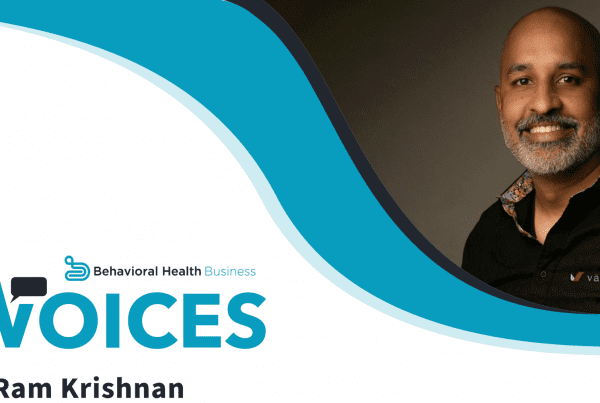An electronic health record (EHR) system is a critical tool for successful, patient-centered psychiatric practices. There are a number of specific technical requirements for an EHR system that meets psychiatrists’ needs. These translate to core functions of an EHR.
Whether you are shopping for a psychiatry EHR to start a practice, or looking to bring prescribers into an established therapy practice, you’ll want to gain an understanding of how the software needs to support your practice.
Understanding Psychiatrists’ Workflows
Here are some of the foundational workflows that are part of a psychiatric practice:
- Onboarding new patients
- Assessing medical histories
- Conducting in-person and telehealth sessions
- Making diagnoses
- Managing documentation
- Developing treatment plans
- Prescribing medication
- Managing labs
- Assessing progress
- Coding and billing
In order to support these workflows, EHR software needs to have a number core EHR tools and functionalities, such as:
- Patient intake and assessment tools
- Clinical documentation tools
- e-Prescribing and medication management features
- Telehealth capabilities
- eLab integrations
- Clinical reports
- Billing and coding features
- HIPAA-compliance
Essential EHR Features for Psychiatrists
Here, we will explore four important categories of EHR features that can help support psychiatrists.
Customizable Note Templates
The ability to create and customize templates for intake, medical history, therapy notes, and progress notes helps save time and energy. Some EHRs also offer automation that allows you to carry over notes from previous sessions, auto-generate narratives, and enhance collaboration with the care team. Each gain in efficiency means more time spent with patients.
Medication Management Tools
E-Prescribing is one of the most important features for psychiatry. An EHR should make it easy to send electronic prescriptions, view medication history, evaluate potential drug interactions, access drug reference information, and integrate with controlled substance and prescription drug monitoring program (PDMP) databases.
In addition, it’s important to be able to obtain prior authorization from insurance and track prescription statuses.
Telehealth Capabilities
HIPAA-compliant telehealth capabilities allow you to treat patients remotely in individual or group therapy sessions. Whiteboarding, chat, and screen sharing can enhance the value and effectiveness of telehealth.
Additionally, if your EHR can collect payment before patients join a session, you can save providers the hassle of asking for it before, during, or after the session.
Billing and Coding Support
A good EHR can help you avoid common billing errors for a smoother, more dependable revenue cycle.
An EHR should streamline billing all throughout the patient care cycle with:
- Clearinghouse integration
- Superbills
- Electronic remittance advice (ERA) support
- A detailed billing dashboard that allows you to track claims
- Robust reporting
Security and Compliance Considerations
Here, we will discuss two key concerns for your EHR’s security and compliance:
HIPAA Compliance
A strong EHR should be designed to ensure patient data privacy. Communication with patients is a key part of this. Look for a secure, integrated patient portal for messaging, assessments, and billing purposes. This helps ensure protected data and communications are only accessible via a secured system.
Restricting access to patient charts with role-based access controls also helps prevent unauthorized disclosures of protected health information.
Data Backup and Recovery
Cloud-based EHRs can ensure dependability and prevent data loss by eliminating needs and risks inherent in on-premise hosting and data storage. Regular backups prevent data loss and help you quickly recover from disasters.
User Training and Support
Let’s cover two EHR support considerations for your practice’s ongoing success.
Onboarding New Psychiatrists
EHR vendors should offer robust training and support resources. That includes live training sessions, self-paced learning modules, test environments, and a wide-ranging knowledgebase. This will help familiarize psychiatrists and other staff with your EHR’s features, as well as to onboard employees hired after your EHR is implemented.
Ongoing Support
After implementation, you’ll want access to troubleshooting assistance and helpdesk services. Look for vendors that offer multiple communication methods to fit your practice’s busy schedule, including emails, phone assistance, and live screenshare sessions.
Integration
In this final section, we will discuss interoperability and potential for collaboration with other providers.
Interoperability
An interoperable EHR should include integrations with external entities such as billing clearinghouses, pharmacies, and PDMPs.
Also, your practice will likely benefit from the all-in-one approach – an EHR that combines all the necessary features and functions into a single system – so that you can avoid using additional third-party platforms.
Collaboration Tools
A strong EHR can help you collaborate with other providers, either in-house in a large behavioral health practice or externally, such as social workers, counselors, and other providers. Although this may only be appropriate in certain circumstances, it can help you build a holistic patient care cycle that improves patient outcomes.
Conclusion
Psychiatrists are a pillar of behavioral healthcare, so addressing their needs in an EHR software solution is important for both providers and patients. With the support of a robust psychiatry EHR, your practice can set prescribers up to provide high-quality care.
The Continuum of Change Management
Our whitepaper ‘The Continuum of Change Management’ breaks down the complexities of managing change in your organization and explores how different types of EHR solutions can help you overcome those challenges.









